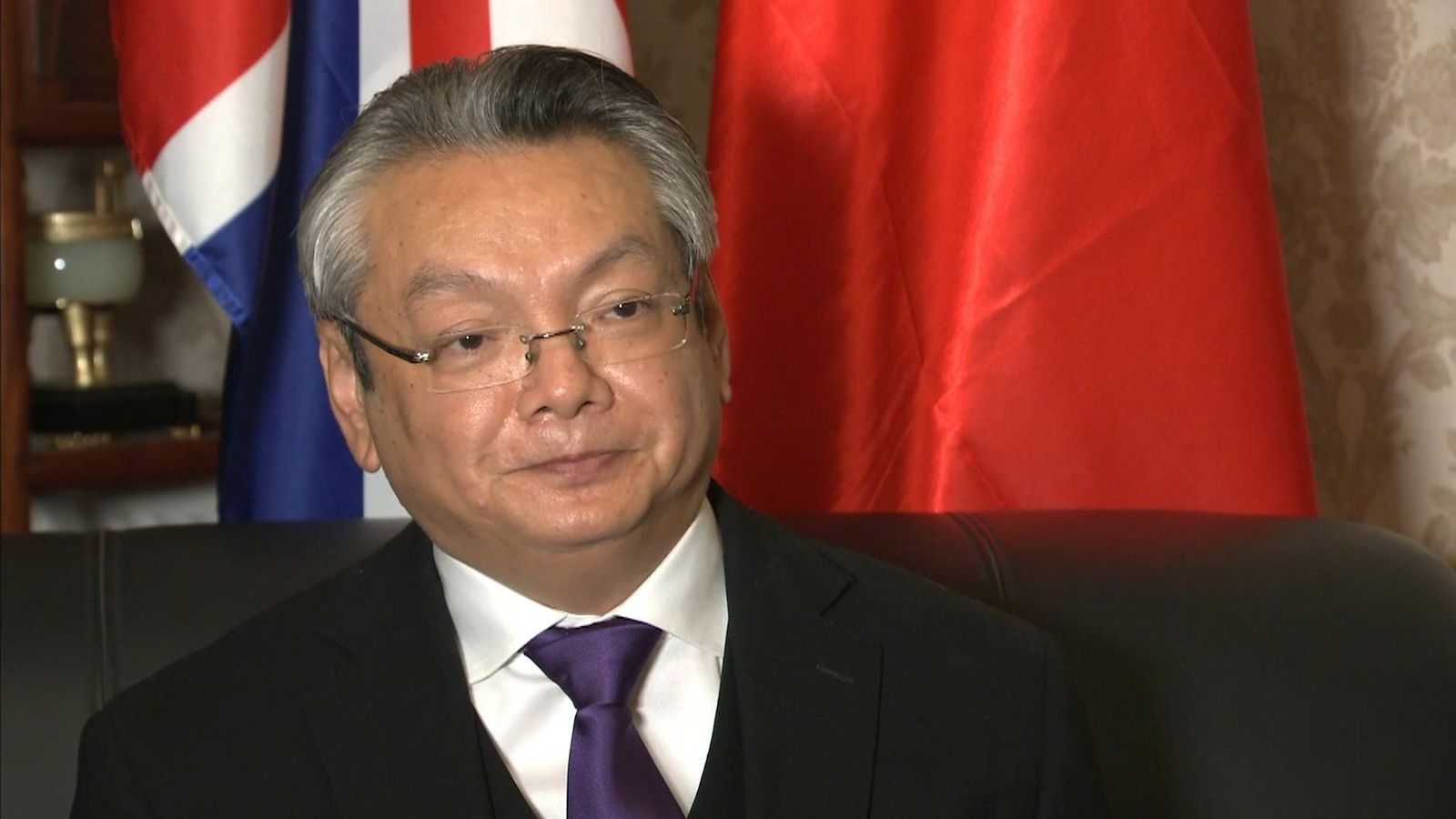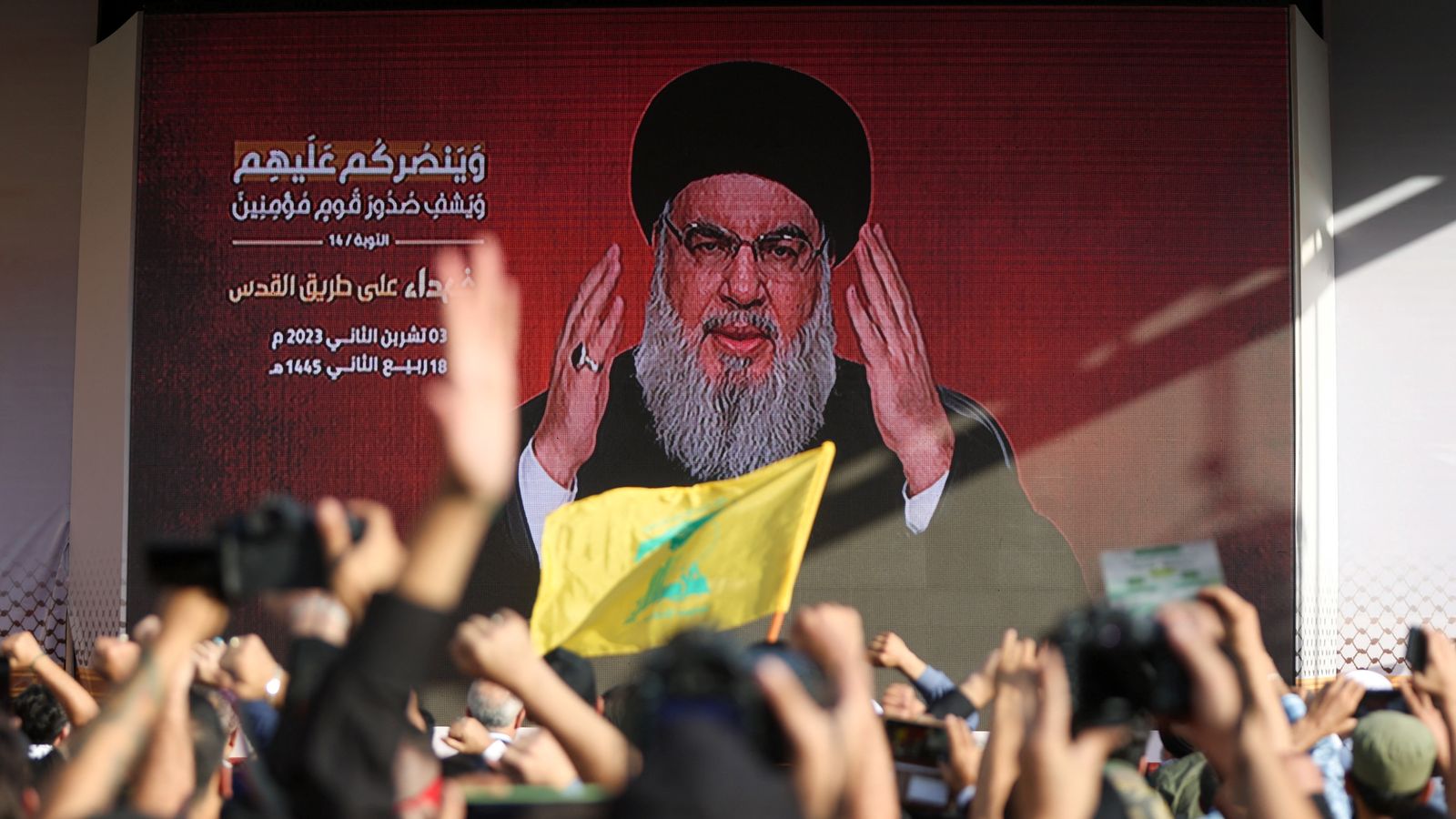The Chinese consul-general accused of attacking a protester has denied the claims and said his alleged victim was “abusing my country, my leader”.
Top diplomat Zheng Xiyuan was pictured pulling Bob Chan’s hair before yanking him into the Chinese consulate in Manchester.
Mr Zheng told Sky News that it was his “duty” and he was at the demonstration “peacefully”.
What happened outside and on the grounds of the consulate is now the centre of a diplomatic incident.
A pro-democracy protest by Hong Kongers started off peacefully but banners and posters, which the Chinese say they found deeply offensive, were torn down by officials including the consul general.
That led to a violent clash which saw Bob Chan apparently dragged into the consulate grounds and beaten by its staff – leaving him with cuts and bruises all over his body.
Please use Chrome browser for a more accessible video player
But these claims have been refuted by Mr Zheng, who said: “I didn’t beat anybody. I didn’t let my people beat anybody. The fact is, the so-called protesters beat my people.”
Police appeal for video footage after ‘absolutely unacceptable’ attack on protester at Chinese consulate in Manchester
The ‘green code’ app: How China’s Zero COVID policy is turning cities, parks, restaurants and shops into digitised fortresses
Chinese diplomat was involved in unrest at protest outside Manchester consulate, says MP
However, when asked about the hair pulling incident, he said: “He (Bob Chan) was abusing my country my leader, I think it’s my duty.”
Mr Zheng added: “I think it’s an emergency situation – that guy threatened my colleague’s life, and we tried to control the situation. I wanted to separate him from my colleagues – that’s a very critical point.”
Please use Chrome browser for a more accessible video player
‘They used very rude words – unacceptable’
Asked why the peaceful demonstration turned violent, Mr Zheng claimed it was because of the “rude banners” that had been put on display.
In a letter sent to Greater Manchester Police, he stated the banners featured a “volume of deeply offensive imagery and slogans”, including a picture of the Chinese president Xi Jinping with a noose around his neck.
Read more:
China has ‘right to use force’
Why President Xi Jinping could be ‘ruler for life’
Who is Hong Kong’s new leader – and why are people concerned?
“I think the most serious reason for this incident is because they used very rude banners. They used very rude words, unacceptable. Everybody never accepts these kinds of words,” he told Sky News.
“It’s not right to put such banners close to my gate. After I advised them to remove very politely, they refused.”
‘I was under attack’
In his letter, the consul general also said he was disappointed police didn’t do more to help and claimed one of the protesters grabbed a member of his staff “by the neck and refused to let go” during the ensuing scuffle.
“I was under attack by the protesters and my colleagues were under attack and at that time, we didn’t receive any protection from the policeman, so we had to do something to protect ourselves,” Mr Zheng said.
He added some of his staff were injured during the incident, with video footage showing a man allegedly from the consulate being kicked by protesters whilst on the floor.
“It’s a very serious harassment for me, the consulate and China,” he added.
Please use Chrome browser for a more accessible video player
Protester was ‘kicked and punched’
The protester at the centre of the controversy, Bob Chan, fled Hong Kong to the UK for his safety last March, but explained how he thought he was going to die during the incident.
“I held onto the gate where I was kicked and punched. I could not hold on for long and was eventually pulled into the grounds of the consulate,” he said.
“I’m shocked and hurt by this unprovoked attack. I’m shocked because I never thought something like this could happen in the UK.”
But it did happen here, and it’s now an issue on the agenda of the foreign secretary, James Cleverly.
It’ll be down to police to decide if any criminal justice action is needed – and for the government to determine whether there are diplomatic consequences.








